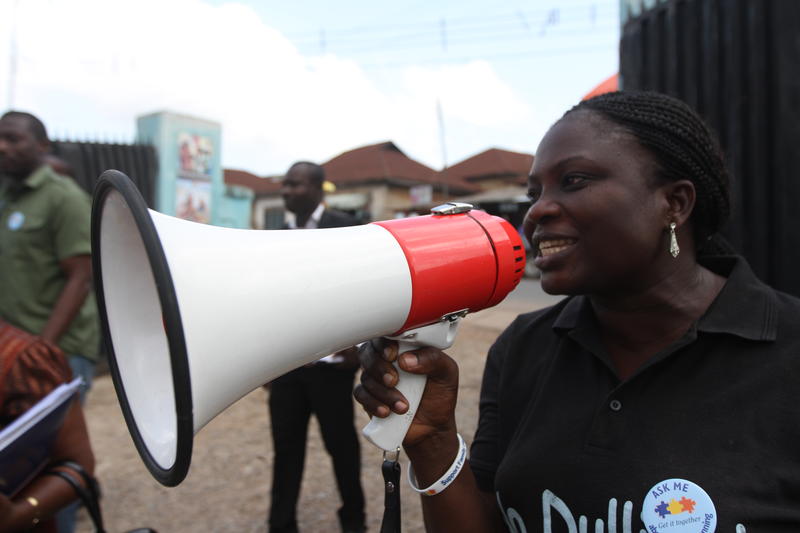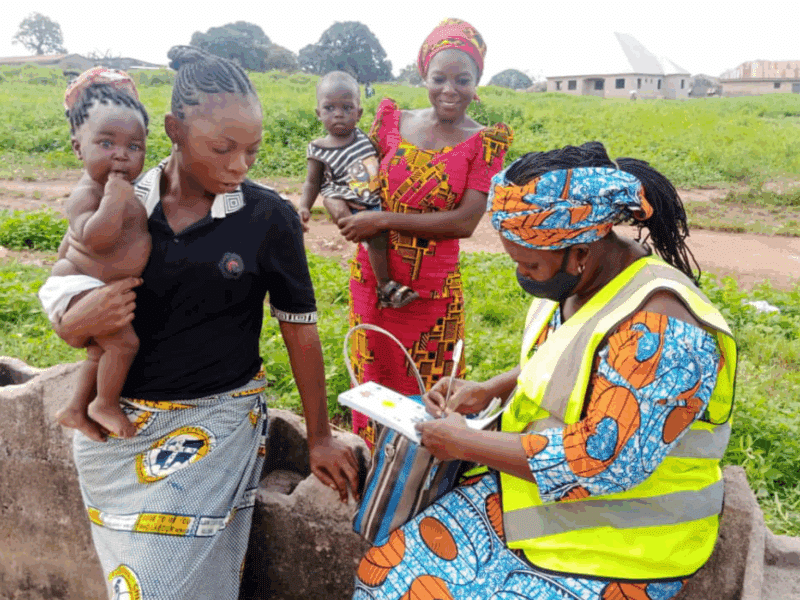In late April, after eight years of advocacy efforts by the Johns Hopkins Center for Communication Programs, the House Assembly of Oyo State – one of the largest in Nigeria – passed a bill requiring the state to sustainably fund family planning efforts there.
The victory was hailed by officials working for CCP’s Nigerian Urban Reproductive Health Initiative (NURHI), a project funded by the Bill & Melinda Gates Foundation to improve uptake of modern contraception methods in the nation. Nigeria is the largest country in Africa by population, with low contraceptive use rates and high maternal, newborn and child mortality rates.
“We have advocated for an increase in family planning funds for nearly a decade and we are thrilled that this bill has finally been passed,” says CCP’s Stella Akinso, the Oyo State team leader for NURHI. “We made the case that smaller family sizes can positively impact the economy, education and health and can increase the standard of living for everyone. And the government finally agreed.”
Akinso says that while the NURHI team was advocating at the state level for more funds, it was also working with local governments to convince them to set aside money for family planning on the local level. Fifteen local governments set aside nearly 15 million naira (about $41,000 U.S. dollars) for family planning.
Family planning funding is used to train nurses, doctors and other health workers on how to counsel patients effectively and how to use certain contraceptives. It goes to promote access to a wide range of contraceptives including long-acting reversible contraception such as IUDs and injectables and to procure the supplies and other needed equipment. It goes to support communication efforts that generate demand for family planning services.
In the past five years, during which NURHI has been active in Oyo State, the percentage of women of childbearing age using modern contraception went from 24 percent to 44.5 percent. A new goal will be up to 65 percent, Akinso says.
Family planning continues to be a sensitive subject in Nigeria. Some religious leaders still object to its use and many myths and misperceptions about contraception make it difficult to get some women to adopt modern methods. Some of the most prevalent myths are that contraception makes women more promiscuous and that it causes infertility (both of which are false).
The advocacy work began eight years ago when CCP sent a facilitator from Baltimore to Nigeria in order to train local staff on advocacy and to develop an advocacy kit to help them in their work of engaging key influencers on the benefits of family planning.
Initially, they met with the speaker of the House of Assembly without success. They had countless other meetings. They hired a lawyer to write a bill. In 2015, they made headway with the newly elected speaker.
“He was so touched by what we said and was able to relate with agonizing effect of maternal death. Everyone knows someone who has died in childbirth,” Akinso says. “He was enthusiastic about the bill and poised to push it through.”
Later they met with committee leaders in the House. They held what was the first-ever public hearing in the state – and 400 people attended to talk about the bill. Eventually that led to the bill’s passage.
“This bill means we don’t have to go around to local governments anymore begging them to support family planning,” she says. “It will now be the law that the state has to release money for family planning and maternal health.”
And even though the political winds are in their favor now, the bill is needed, she says, for when its current supporters are no longer in power.
“We really want family planning to be sustained in Oyo State,” Akinso says. “And to be sustainable, it has to be in the budget.”
Says CCP’s Dr. Mojisola Odeku, portfolio director NURHI: “This will stimulate other states in Nigeria to emulate Oyo State as the pacesetter on family planning. We have set the tone for Oyo state to be the learning lab for others willing to take this bold step.”





